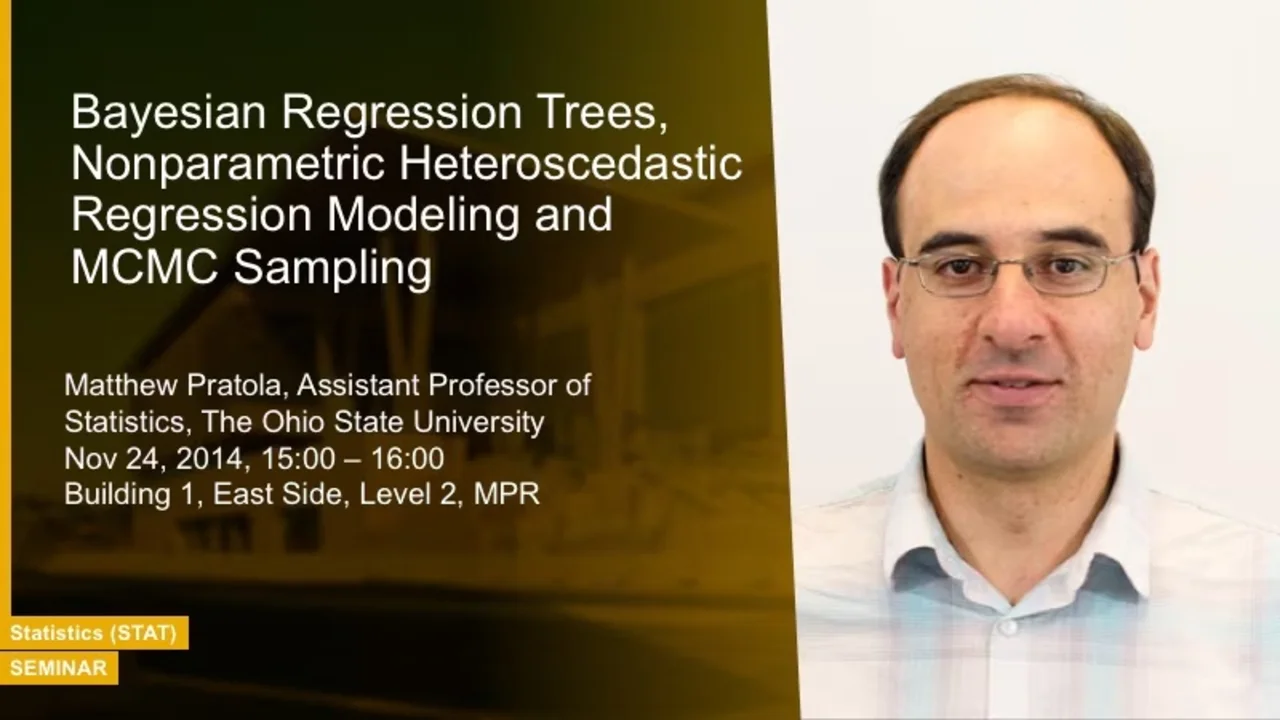
Bayesian Regression Trees, Nonparametric Heteroscedastic Regression Modeling and MCMC Sampling
In this talk, we introduce a new Bayesian regression tree model that allows for possible heteroscedasticity in the variance model and devise novel MCMC samplers that appear to adequately explore the posterior tree space of this model.
Overview
Abstract
Bayesian additive regression trees (BART) have become increasingly popular as flexible and scalable non-parametric models useful in many modern applied statistics regression problems. They bring many advantages to the practitioner dealing with large datasets and complex non-linear response surfaces, such as the matrix-free formulation and the lack of a requirement to specify a regression basis a priori. However, there are some known challenges to this modeling approach, such as poor mixing of the MCMC sampler and inappropriate uncertainty intervals when the assumed homoscedastic variance model is violated. In this talk, we introduce a new Bayesian regression tree model that allows for possible heteroscedasticity in the variance model and devise novel MCMC samplers that appear to adequately explore the posterior tree space of this model.
Brief Biography
Matthew Pratola is an Assistant Professor of Statistics at The Ohio State University. He is interested in computer model calibration, uncertainty quantification and scalable Bayesian non-parametric regression models applied to environment, climate and environmental health problems. He currently or in the past has worked on a variety of collaborative interdisciplinary research projects with colleagues from the National Center for Atmospheric Research, Los Alamos National Laboratory, Simon Fraser University, Acadia University, University of Chicago as well as the College of Public Health and Dept. of Mechanical and Aerospace Engineering at Ohio State. He is also a member of the Statistical Society of Canada (SSC) and the American Statistical Association (ASA), where he currently serves as the Publicity Chair of the Section of Physical and Engineering Sciences (SPES).